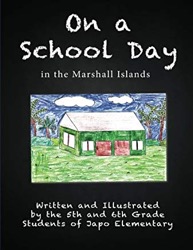By Yoo Kyung Sung, University of New Mexico and Junko Sakoi, Tucson Unified School District
In this month’s WOW Currents, Yoo Kyung Sung and Junko Sakoi talked about their project, “Read, Write, Review for Us (RWRU)” and how it is helping to educate local Tucson children about the refugee experiences of kids just like them. This week we will focus on the positive developments that came from the students’ pen pal experience. We will also discuss what teachers can do through classroom instruction to cultivate awareness of the diversity of people and cultures in the community.
In the last issue, we described the process the 5th graders went through to prepare the letters for their pen pals. Currently, the students have also penned a second letter. We noticed some interesting changes in the writing content. The children did not indicate country of origin or spoken language in the first letter. There was instead much focus on the correct usage of their written English. While in the second letter, the students confidently talked about where they were from and what languages they spoke. The major differences between the two letters provides some confirmation that the series of literacy events (text set browsing, reading, review writing and the bookmark project) significantly built up their confidence. Browsing the books and creating bookmarks was significantly meaningful for the children. It allowed them to experience cultural affirmation of their own identities and learn more about their peers. For the 5th graders, who they are and where they are from grew to be as important as their competence in the English language. They also realized that they have many life experiences to share with their peers and pen pal buddies. After learning all this, we wondered if teachers shared culturally relevant literacy practices with local refugee students in the classroom. Were lessons being taught on the refugee experience?
When it comes to teaching about the refugee experience, the most common reply was, “It is an important unit, yet I am concerned about a few things.”
Junko had an opportunity to have a casual conversation with a couple of Tucson teachers. The teachers expressed a strong desire to teach refugee experiences as a unit, along with historical backgrounds of Middle Eastern nations including Syria. However, there appeared to be several obstacles preventing them from doing so. First, the teachers have limited time to prepare for new units, as they are already on a very tight schedule. Second, topical sensitivity was a huge issue. Many were hesitant to put together lessons in which they knew parental approval would be difficult to receive. Lastly, all of the teachers were in a dilemma regarding how to approach a refugee unit in a way that would help the students to develop an empathetic understanding and not perpetuate the already negative images of refugees. On the other hand, teachers already think of creative ideas to utilize in making empathetic connections to refugee unit. For example, teachers talked about how they help students draw connections to refugee experiences through the immigration history in the United States and abroad. Also, domestic hardships such as Hurricane Katrina and most recently, Hurricane Michael allow for a student discussion about the resulting displaced people and challenges the concept who and what events can lead to someone becoming a refugee. By raising empathetic connections with which the students are more familiar, it helps to raise community awareness of the local refugee populations.
It is time to embrace refugee students as a part of our student body and our community. In class, a wide range of global and international books help support students who once were refugees to re-develop their cultural pride while they also develop a new Tusonan identity. These shared experiences through literacy and personal interactions also help non-refugee Tucsonan students to have the opportunity to really think about what it means to be dislocated. Through community efforts starting in local schools, we can soften the imagined border which separates students previously known as refugees, to just simply being known as people.
Journey through Worlds of Words during our open reading hours: Monday-Friday, 9 a.m. to 5 p.m. and Saturday, 9 a.m. to 1 p.m.
- Themes: Junko Sakoi, Teaching about the Refugee Experience, Yoo Kyung Sung
- Descriptors: Books & Resources, Student Connections, WOW Currents

